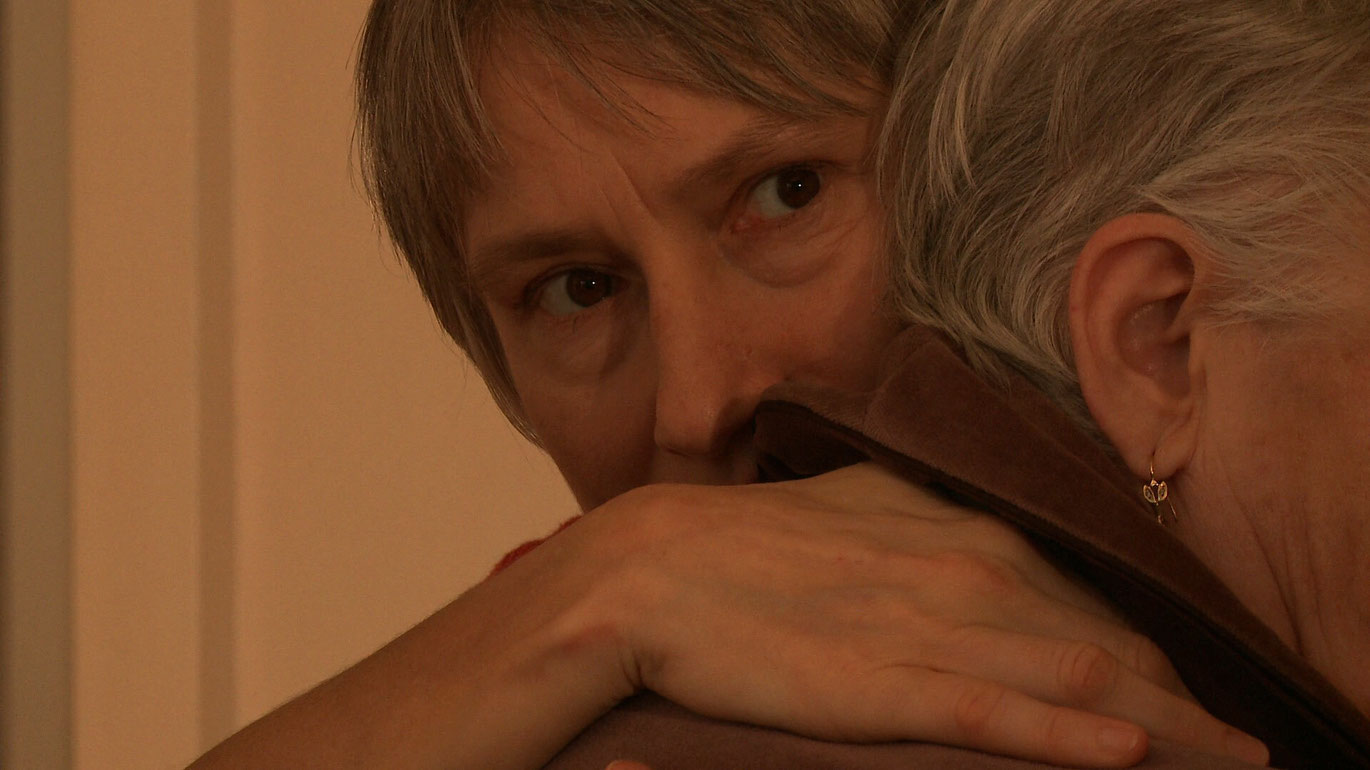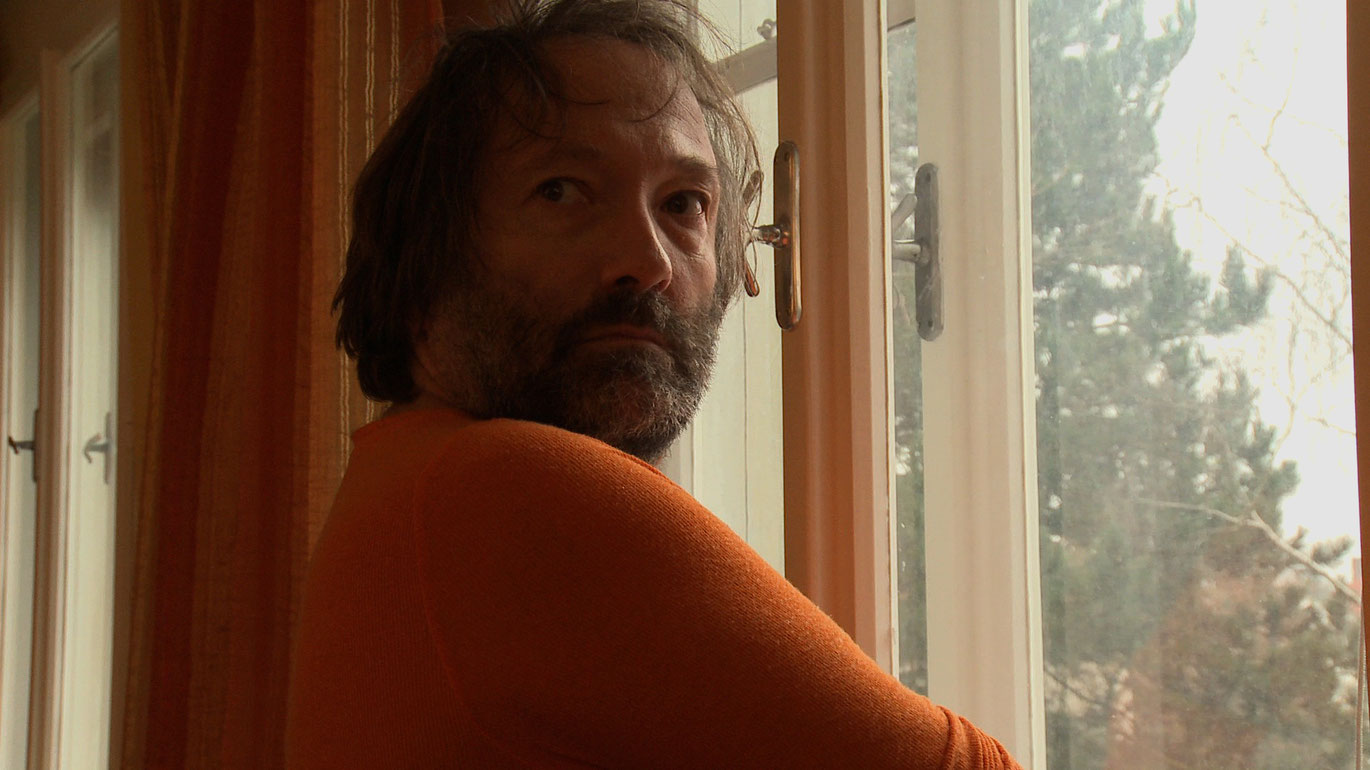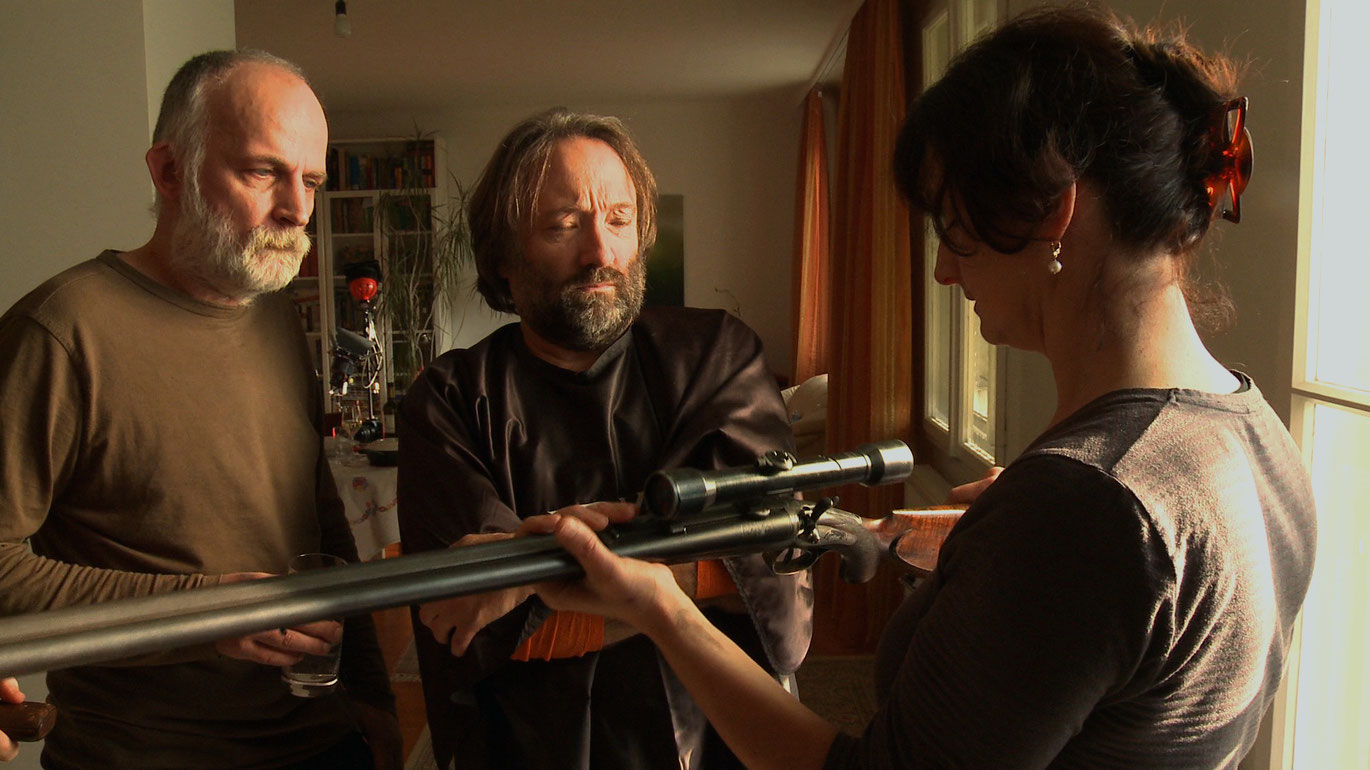Feeling Doberman
Feeling Doberman is a family horror film that treads on thin ice. While filmmaker Gabriele Mathes directs a family in front of the movie camera, the viewer cannot help but wonder where the staging ends and reality begins. Are these really the director´s siblings, her mother, niece and nephew? Are the memories they share while the camera is running real? Is the part about their starved pet, with matted fur and milky eyes simply a story conceived for the screenplay?
Scene 1, Living Room: The director discusses last details about roles with the protagonists while the mother has her make-up done in the background. She is supposed to play the part of an old lady living at home in the care of her daughter. But according to the screenplay, the daughter cannot stand the situation anymore and longs for the death of her needy mother. Or at least that she be placed in a nursing home. "I don´t want to go to a home," the mother protests. "But that´s how it goes in the film," the director sternly replies.
Scene 2: The children throw Lego in the foreground while mother is heard screaming off-screen, "Ow, ouch!!! I need help!!!" The daughter is unmoved and continues to cut hair, her husband smokes, "Should I go in?" – "Nah.. Let her scream a little while longer."
There is an unspoken agreement in mainstream film: Family, children, and old people are protected. Michael Haneke´s Funny Games consciously unleashed an attack of family in his violent explosion of this assumption. Gabriele Mathes takes a side step. Nobody comes to physical harm in Feeling Doberman. But the notion of giving free reign to one´s aggression, to tie up and beat mother in order to stop her whining, elicits anger and fear that is legible in the expressions of those involved. And this is unquestionably real.
(Maya McKechneay)
Translation: Eve Heller
The female director briefs the mother on the upcoming scene in the film. But the mother complains about the daughter´s rage formulated therein. Whether it is that of the character or that of the actual relation remains unclear. Also the further proceedings defy the unambiguous distinction between play and life; A subtly constructed intimate play about (familial) speechlessness, childhood trauma, and sadism.
(Sebastian Höglinger, Diagonale-Katalog)
Gefühl Dobermann
2015
Austria
16 min



